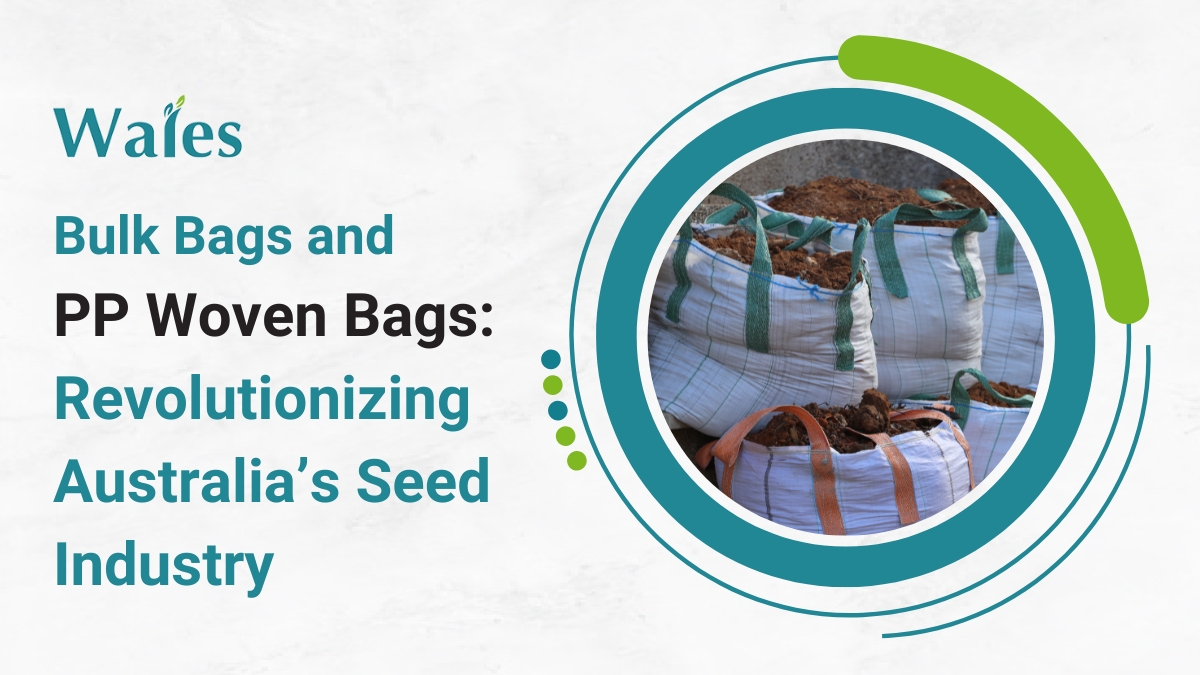Introduction
Australia’s seed industry is a cornerstone of its agricultural success, supporting global food security and sustainable farming practices. Companies like Selected Seeds, Richmond River Seeds, AGF Seeds, South Pacific Seeds, and Tasmanian Seed rely on advanced packaging solutions to ensure seed quality, longevity, and compliance with international standards. Among these solutions, bulk bags (also known as FIBCs) and PP woven bags have emerged as indispensable tools. This blog explores their role in Australia’s seed sector, highlighting their benefits, applications, and relevance to leading seed enterprises.
The Critical Role of Packaging in the Seed Industry
Seeds are living organisms sensitive to moisture, temperature, and physical damage. Poor packaging can lead to contamination, reduced germination rates, or spoilage. For Australian seed companies – many of which export globally – durable, customizable, and eco – friendly packaging is non – negotiable. Bulk bags and PP woven bags address these needs by combining strength, versatility, and compliance with agricultural standards.
What Are Bulk Bags and PP Woven Bags?
1. Bulk Bags (FIBCs):
- Constructed from woven polypropylene (PP), these large capacity bags (typically 500 – 2000kg) are designed for transporting and storing dry goods like seeds, fertilizers, and grains.
- Features include UV resistance, moisture – proof liners (PE liners), and anti- static properties for hazardous materials
2. PP Woven Bags:
- Made from polypropylene threads woven into durable fabric, these bags are lightweight yet robust. Common applications include seed packaging in weights of 10 – 50 kg.
- Customizable printing allows branding and compliance labeling (eg seed type, brand, batch number etc)
Key Benefits for Australia’s Seed Sector
1. Durability and Load Capacity
PP woven fabric’s high denier (thread thickness) ensures tear resistance, critical for heavy or sharp – edged seeds like sunflower or corn. Bulk bags with reinforced stitching and “sift – proof” seams prevent leakage during transport.
2. Moisture and Climate Control
Many Australian seed companies operate in humid regions (e.g., Richmond River Seeds in NSW). PP woven bags with PE liners block moisture ingress, while breathable mesh options suit seeds requiring airflow, such as legumes.
3. Customization and Compliance
- Printing: we can print your artwork on the bag, so customer will easy to remember your name
- Food – Grade: Wales Industries has a BRC Certificated factory to make food grade bulk bags to suitable your production needs, we can help you pass the audit. Also, our Food grade bulk bag price is very good in the market.
4. Cost and Logistics Efficiency
- Reduced packaging waste: A single FIBC replaces hundreds of smaller sacks, minimizing material use and disposal costs.
- Ease of handling: Forklift – compatible loops enable quick loading / unloading, cutting labor time.
- Lower freight costs: Consolidating seeds into bulk shipments reduces per – unit transportation expenses.
Choosing the Right Supplier: Factors for Australian Companies
- Certifications: all our bags are passed Australian standard and international standard
- Customization: Wales Industries has its own factory, so we can make various types of bags to suit your needs, from open top bags to baffle bags etc. Also we have large stock ready to ship.
Conclusion
For Australia’s seed industry, bulk bags and PP woven bags are more than packaging. They are a bridge between quality control and global market demands. Wales Industries will help your business and ensure you are at the forefront of agricultural excellence.
